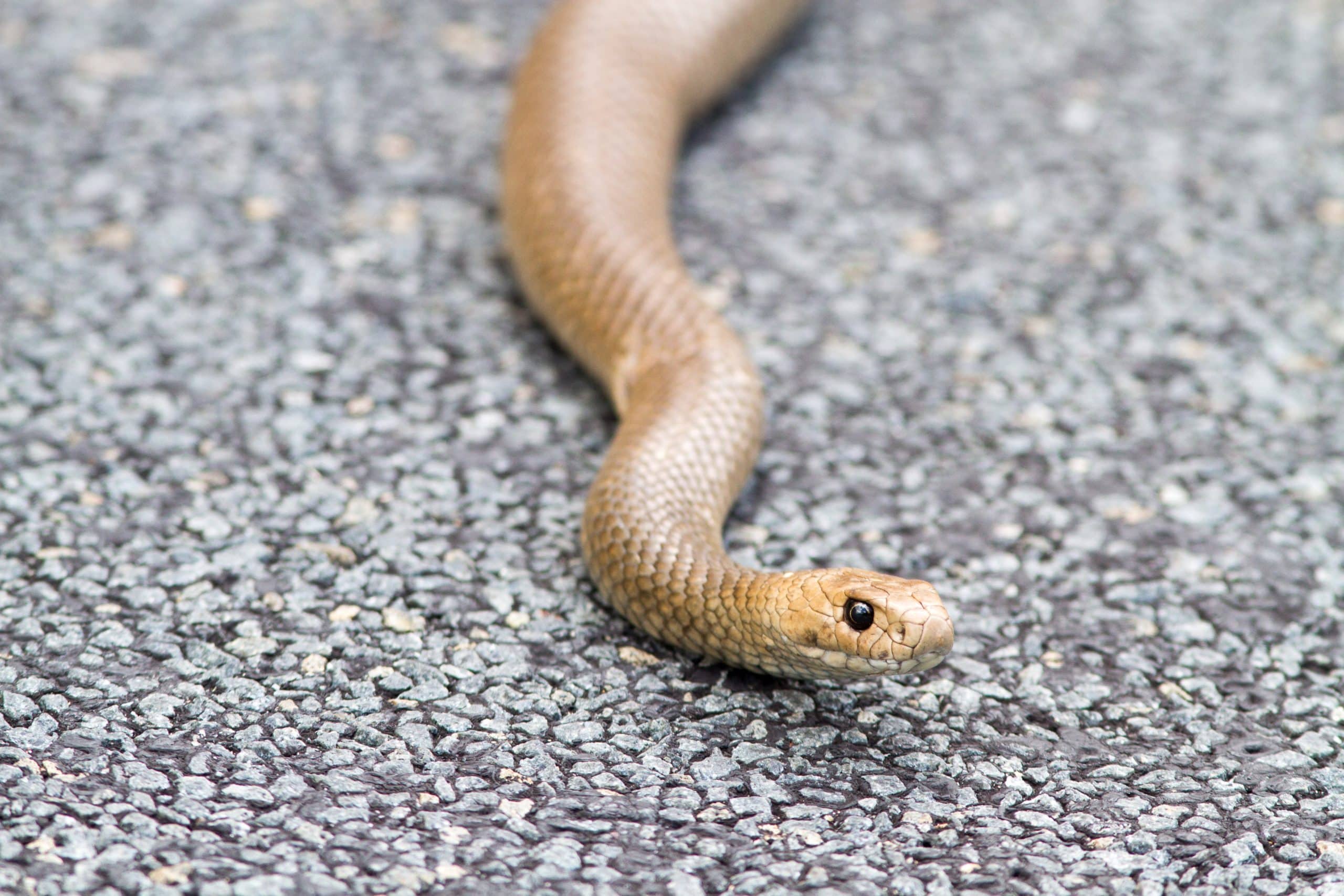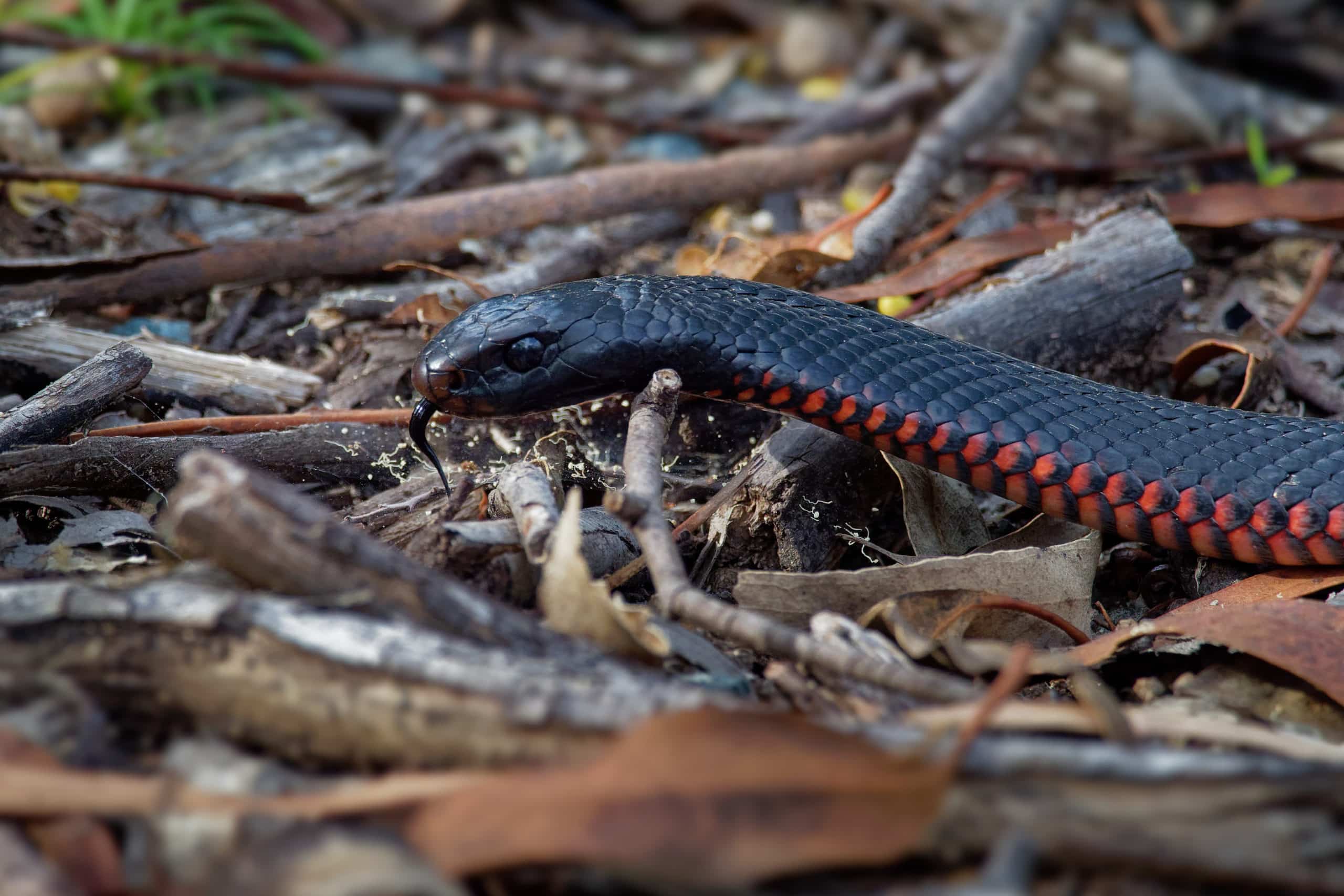Due to the serious nature of snake venom and the signs and symptoms it presents, many dogs and cats sadly end up requiring pet intensive care. At the Pet Intensive Care Unit in Underwood, nurses work around the clock to provide one on one support to pets with snake bites, ensuring patients remain calm and stress-free; important throughout the toxin recovery process. A number of factors determine the patient’s care plan, including the patient’s age, weight and breed, and type of snake venom present. Regardless of their plan, every pet is carefully and continuously monitored (hence the intensive care required) according to a number of factors.
Pets who are bitten by an Eastern brown snake

They may receive treatment in the form of being given clotting factors (present in plasma, one of the products we have on board from our K9 Hero blood donor program). If the pet has become anaemic from blood loss, they may require a blood transfusion.
Due to the varying levels of paralysis, the treatment plans are often changed on a day to day basis, sometimes even more frequently. Often these patients require pain relief, regular physiotherapy, eye lubrication, and various medications to help them fight the venom. Nurses surround these patients around the clock and support their recovery in the Pet Intensive Care Unit.
Pets bitten by a red-bellied black snake

Because of these complications, intensive nursing plans are required to monitor patients who suffer; often requiring round-the-clock nursing care. Treatment involves an infusion of snake anti-venom, intravenous fluids to flush the kidneys, pain relief. Depending on the seriousness of the symptoms, these patients may also receive plasma and/or blood transfusions for clotting and physiotherapy.
Pets suffering from whip snake envenomation
While whip snakes tend to be less venomous for our patients, they can cause complications. These complications tend to be compounded in cats, however, dogs may also be affected. Whip snake bites can cause localised swelling of the bite site and total limb paralysis, especially in our feline friends. This means pain relief and intensive supportive care is essential. Unfortunately, there is no anti-venom available for this type of snake envenomation.
Snake envenomation in our pets is never something to be taken lightly, and time is always of the essence. The quicker a diagnosis can be made, and subsequent anti-venom be administered, the faster it will bind to the toxin, allowing the body to heal.
In the Pet Intensive Care Unit, patients are kept comfortable and quiet so they can recover. Of course, as they start improving, this may become frustrating for them. Paralysed patients often want to move around but are too weak to do so – this is where intensive 24-hour care is important. As previously mentioned, each patient is different and their recovery times also differ, and it is with this in mind that the patients receive individualised care, whether that be with more frequent turning and physiotherapy, oxygen therapy, pain relief, antibiotics and so on.
For more information about snake bites on dogs, read our blog A Guide To Snake Bites on Dogs.
If your pet has been bitten by a snake or you suspect they have, contact your closest Animal Emergency Service hospital or your local vet immediately.
